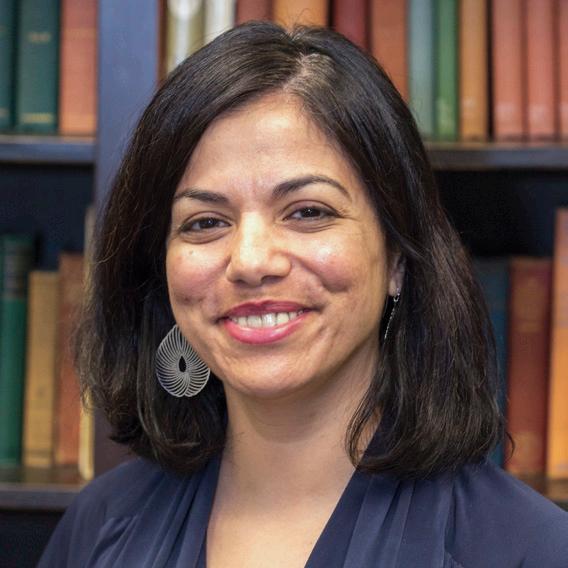
1 minute read
Faculty Research Spotlights Daisy Hernández
INTERVIEW
Daisy Hernández
Author and Assistant Professor of English
What have you been working on this academic year?
I’ve been celebrating the publication of my book “The Kissing Bug!” I also finished a short story that is forthcoming in the Iowa Review and an essay on the Midwest that will be published this June.
What are the key insights you had while writing “The Kissing Bug?”
When it comes to public health in the U.S., we have a policy of containment rather than eradication; and these efforts unfortunately break down along race and class lines. For example, many Americans don’t think about tuberculosis, but the disease is still found in immigrant communities because we didn’t find a way to make treatments sustainable for communities around the world.
How did you enjoy your moment at the PEN America Literary Awards ceremony?
It was amazing! I wasn’t expecting it at all, so it came as a huge shock. The ceremony is similar to the Oscars where you don’t find out which author won which prize until you’re there. It was incredible to hear my name called.
What stood out to you while writing “The Kissing Bug?”
I worked on this book for seven years, during which I learned a great deal about medicine, public health, and racial politics. I wanted to understand why the U.S. had ignored Chagas — a parasitic disease that disproportionately afflicts Latinx immigrant communities — for more than 100 years. To grasp this neglect in public health, I interviewed doctors, patients, their families, and many other experts.
How did the Altman Program contribute to your scholarship?
The Altman program allowed me to spend a glorious year immersed in the world of the medical humanities. Being in conversation with faculty at Miami, as well as with invited speakers, introduced me to many new ideas that ultimately informed “The Kissing Bug.” I was particularly moved that we were able to bring the science writer Sonia Shah to campus — listening to her talk about her book on pandemics helped me consider how I was approaching my own work and provided me with a new perspective when COVID-19 hit.







